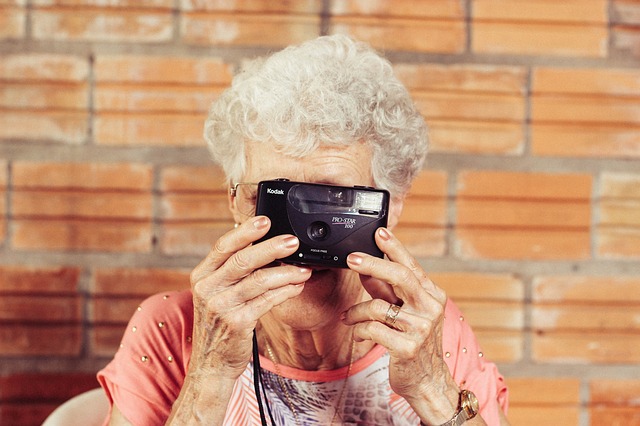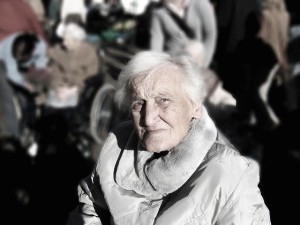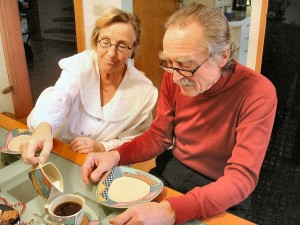- Calls to this hotline are currently being directed to Within Health, Fay or Eating Disorder Solutions
- Representatives are standing by 24/7 to help answer your questions
- All calls are confidential and HIPAA compliant
- There is no obligation or cost to call
- Eating Disorder Hope does not receive any commissions or fees dependent upon which provider you select
- Additional treatment providers are located on our directory or samhsa.gov
Effective Psychotherapy Treatment for the Elderly Eating Disorder Patient

Contributor: Leigh Bell, BA, writer for Eating Disorder Hope
The face of eating disorders – what most of us think someone with an eating disorder looks like – is a teenage girl, maybe a young woman; and this isn’t necessarily wrong. The majority of people of with an eating disorder is young and female. But beyond this group are older people struggling, often in secrecy and confusion, with the deadliest psychological illness – up to 20% of chronic sufferers die from an eating disorder.
What is The Best Treatment for Elderly Individuals with an Eating Disorder?
And nobody has nailed down what treatment works for elderly people with eating disorders. Not because they don’t care, but partly because this older population often remains in the shadows, shamed for having an illness most people think is limited to younger people.
Also, most researchers aren’t particularly dedicated to finding effective treatment for eating disorders of the elderly because they’re the minority of those who struggle. Successfully treat the majority, and eradicate the majority of the illness.
Adults account for about 35% of people with anorexia, and this group “continues to worry clinicians and researchers,” according to one scholarly article.
“Those who have the disease for a long time are often foiled by an unfortunate mix of circumstances, including a history of inadequate treatment, a lack of trials that would otherwise have guided clinicians and a dearth of specialty inpatient units,” says in the article Dr. David Le Grange, a professor of psychiatry and eating disorder specialist at the University of California, San Francisco,
“Most clinicians are trying to figure out how to treat these patients on their own,” Le Grange says. “I say to my students, if you want to go into research, here’s an area that’s ripe for a lot of hard work.”
Many Elderly Individuals Never Seek Treatment
 This elderly population has likely had an eating disorder for decades, never seeking treatment, and living well enough to stay alive but poorly enough to truly live.
This elderly population has likely had an eating disorder for decades, never seeking treatment, and living well enough to stay alive but poorly enough to truly live.
Other people with an eating disorder later in life either were in remission and relapsed, or developed the eating disorder for the first time as an older adult, which is most unlikely scenario.
Old age isn’t armor against poor body image or low self-worth based on appearance. Elderly women actually have similar levels of body dissatisfaction as young women, because the sociocultural standards of body image and pressures toward thinness affect different generations of older women in the same way.
A study published in the International Journal of Eating Disorders surveyed almost 2,000 women ages 50 and older. More than 70% of them were currently trying to lose weight, and 80% said their weight and body shape affected their self-image.
More than 10% of these women had signs of an eating disorder. This is crucial information because there are 53 million women ages 50 and older in the United States.
Increased Reports of Eating Disorders Among Middle-Aged Individuals
 The Renfrew Center, an eating disorder treatment center in Pennsylvania and other locations, reports intakes in the middle-aged increased by 42% between 2001 and 2010.
The Renfrew Center, an eating disorder treatment center in Pennsylvania and other locations, reports intakes in the middle-aged increased by 42% between 2001 and 2010.
Statistics like these subvert society’s stereotype of eating disorders and those who have them. Still, we’re behind on research-based treatment that helps them.
There are no clinical trials comparing treatment strategies in older patients, according to the National Eating Disorder Association. Adaptation of treatment as usual to address the special needs of older patients presenting with eating disorders seems appropriate, it says.
Treatment is still not as effective as we’d like with a recovery rate of roughly 50%. It’s estimated of those with anorexia, 25% remain chronically ill and, as previously mentioned, about 20% die from the disease.
Cognitive Behavioral Therapy
 Cognitive Behavioral Therapy or CBT is recognized as the “most effective treatment” for bulimia in general, surpassing successful outcomes with the use of other psychotherapies and antidepressant medication, according to a large study of outcomes. Unfortunately, even with CBT, only about half of those with bulimia actually recover, researchers found.
Cognitive Behavioral Therapy or CBT is recognized as the “most effective treatment” for bulimia in general, surpassing successful outcomes with the use of other psychotherapies and antidepressant medication, according to a large study of outcomes. Unfortunately, even with CBT, only about half of those with bulimia actually recover, researchers found.
One study divided of adults with anorexia into two groups, one had CBT and the other had only nutritional counseling . Those with nutritional counseling dropped out at a far greater rate (73%) than those with CBT (22%). Still, the researchers make a good point: “We know of no empirical support for any intervention for adult anorexia nervosa.”
One study of 84 adults with anorexia tested for one year four different types of treatment, including psychoanalytic psychotherapy, which believes a greater understanding of one’s inner-self will improve current situations; cognitive-analytic therapy, which looks at the chain of events and/or thoughts that lead to the problematic behavior and tries to change them; family therapy; and “routine” treatment (the control group).
The adults who had psychoanalytic psychotherapy and those in family therapy did better than the rest, and cognitive-analytic therapy also showed some benefits.
Community Discussion – Share your thoughts here!
What has been your experience with psychotherapy treatment for the elderly eating disorder patient? How has this treatment impacted their healing?
 About the Author: Leigh Bell holds a Bachelor of Arts in English with minors in Creative Writing and French from Loyola Marymount University in Los Angeles. She is a published author, journalist with 15 years of experience, and a recipient of the Rosalynn Carter Fellowship for Mental Health Journalism. Leigh is recovered from a near-fatal, decade-long battle with anorexia and the mother of three young, rambunctious children.
About the Author: Leigh Bell holds a Bachelor of Arts in English with minors in Creative Writing and French from Loyola Marymount University in Los Angeles. She is a published author, journalist with 15 years of experience, and a recipient of the Rosalynn Carter Fellowship for Mental Health Journalism. Leigh is recovered from a near-fatal, decade-long battle with anorexia and the mother of three young, rambunctious children.
References
[1]: DeAngelis, T. (2002). Promising treatments for anorexia and bulimia: Research boosts support for tough-to-treat eating disorders. Monitor on Psychology, 33(3), 38.[2]: Lewis, D., Cachelin, F. (2001). Body image, body dissatisfaction, and eating attitudes in midlife and elderly women. Eating Disorders: The Journal of Treatment & Prevention, 9(1), 29-39.
[3]: Gagne, D., Von Holle, A., Brownley, K., Runfola, C., Hofmeier, S., Branch, K. & Bulik, C., (2012). Eating disorder symptoms and weight and shape concerns in a large web-based convenience sample of women ages 50 and above: Results of the gender and body image (GABI) study. International Journal of Eating Disorders, 45: 832–844.
[4]: Middle-Aged Women and Eating Disorders – The Breast Care Site. (2013, February 14). Retrieved December 15, 2015.
[5]: Agras, W. S., Crow, S., Halmi, K., Mitchell, J., Wilson, G.T., Karemer, Helena. (2000). Outcome predictors for behavior treatment of bulimia nervosa: Data from a multisite study. The American Journal of Psychiatry, 157(8), 1302-1308.
[6]: Pike, K., Walsh, B.T., Vitousek, K., Wilson, G.T., Bauer, J. (2003). Cognitive behavior therapy in posthospitalization treatment of anorexia nervosa. The American Journal of Psychiatry, 160(11), 2046-2049.
[7]: Dare, C., Eisler, I., Russell, G., Treasure, & Dodge, L. (2001). Psychological therapies for adults with anorexia nervosa: Randomised controlled trial of out-patient treatments. The British Journal of Psychiatry, 178(3), 216-221.
The opinions and views of our guest contributors are shared to provide a broad perspective of eating disorders. These are not necessarily the views of Eating Disorder Hope, but an effort to offer discussion of various issues by different concerned individuals.
We at Eating Disorder Hope understand that eating disorders result from a combination of environmental and genetic factors. If you or a loved one are suffering from an eating disorder, please know that there is hope for you, and seek immediate professional help.
Last Updated & Reviewed By: Jacquelyn Ekern, MS, LPC on January 26, 2016
Published on EatingDisorderHope.com

The EatingDisorderHope.com editorial team comprises experienced writers, editors, and medical reviewers specializing in eating disorders, treatment, and mental and behavioral health.

